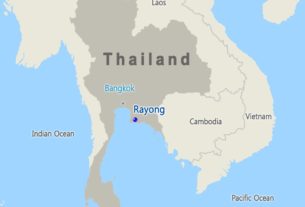Solar roofs are expected to be more popular in Thailand in the coming years given falling solar cell costs and rising gas prices, says energy expert and former energy minister Piyasvasti Amranand, the Bangkok Post reports.
Mr Piyasvasti, chairman of the Energy for Environment Foundation, said the average cost of solar energy at 5.12 to 5.99 baht per megawatt-hour (unit) will make it competitive with liquefied natural gas (LNG), which costs 5.71 baht per unit.
Solar roof costs are in the range of 5.4 to 6.5 baht per unit.
In the longer term, LNG prices will rise in line with global oil prices.
Solar power can also be a power back-up, particularly during peak hours. Normally, solar panels generate electricity during peak hours given the intensity of the sunlight.
“Demand for electricity at midday and in the afternoon should be served by electricity generated by solar panels,” said Mr Piyasvasti.
Thailand cannot avoid using more imported LNG to serve rising energy demand, especially when the supply of natural gas in domestic sources is gradually depleting.
Mr Piyasvasti said the Energy Ministry should do more to promote solar farms.
It should also start offering incentives for solar roofs to be installed at homes and workplaces, as well as factories.
The ministry has decided not to grant new solar farm licences, citing that high costs of solar farms may cause consumers to shoulder higher electricity prices.
Since the government kicked off solar farm promotion in 2007, 155 solar projects have been operated with a combined generating capacity of 379 megawatts.
Meanwhile, incentives for solar roofs at homes and workplaces have been suspended.
According to Citi Research, the average price of solar modules in the global market has dropped significantly from US$74.48 per watt in 1972 to $0.97 by the end of last year.
Accumulated installed capacity surged from 4 MW in 1972 to 93,586 MW in 2012.
Mr Piyasvasti said the government should consolidate agencies responsible for granting renewable energy licences into a one-stop unit.
The Industrial Works Department, Energy Regulatory Commission and the Ministry of Natural Resources and Environment are all involved in licence applications.
Mr Piyasvasti said Thailand has 380 renewable projects with a capacity of 2,902 MW. Biomass provides the biggest share of 1,697 MW, with solar power contributing 379 MW and biogas providing 167 MW.
Prof Dusit Kruangam, managing director of Thai Solar Future Co Ltd, said that if the government gives incentives for solar roofs, more than 100,000 houses will provide demand for solar panels.
One standard solar panel with generating capacity of 3.8 kilowatts costs 200,000 to 380,000 baht.
The investment can break even within 10 years as the cost has halved from 15 years ago, he said.

